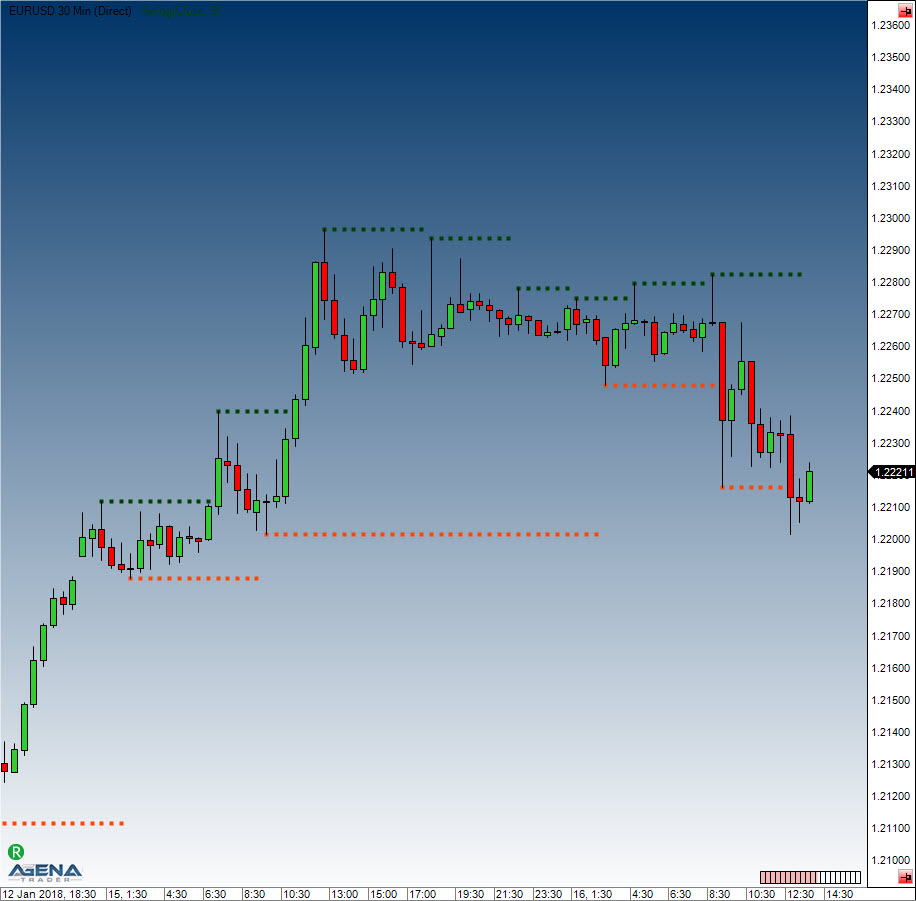Swing
Description
Interpretation
Usage
//For a high
Swing(int strength).SwingHighBar(int barsAgo, int instance, int lookBackPeriod);
Swing(IDataSeries inSeries, int strength).SwingHighBar(int barsAgo, int instance, int lookBackPeriod);
//For a low
Swing(int strength).SwingLowBar(int barsAgo, int instance, int lookBackPeriod);
Swing(IDataSeries inSeries, int strength).SwingLowBar(int barsAgo, int instance, int lookBackPeriod);Return value
Parameters
Visualization

Example
Last updated